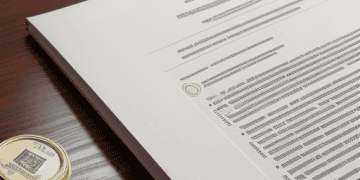The U.S. Department of Commerce has announced a new rule expanding export controls on certain AI-related technologies and advanced computing products.
Key Details of the New Rule:
- Scope Expansion: The rule significantly broadens the scope of controls on advanced computing products, including integrated circuits, computers, electronic components, and related software and technical knowledge.
- License Requirement: Subject to certain exceptions, a license will be required to export these products to destinations outside of 18 U.S. allies.
- Country-Specific Allocations: For the first time, country-specific processing performance quotas will be introduced for the supply of advanced computing items to most countries.
- AI Model Weights: The rule also imposes controls on unpublished AI model weights, marking the first time such restrictions have been applied.
- Effective Dates: The majority of the new restrictions will take effect on May 15, 2025, while some will be delayed until January 15, 2026.
- Public Comment: The Bureau of Industry and Security (BIS) is accepting comments on the rule until May 15, 2025.
Key Highlights:
- Expansion of Advanced Computing Controls:
- The new rule replaces prior licensing requirements for certain countries with a broader, global license requirement for advanced integrated circuits and computing items.
- The foreign direct product rule is expanded, requiring licenses for foreign-produced items derived from U.S. software or technology to be shipped worldwide, unless exempt.
- Three new license exceptions are introduced to provide some flexibility:
- Artificial Intelligence Authorization (AIA): Permits the supply of controlled items to entities in the U.S. or 18 allied countries, with specific end-use certifications.
- Advanced Compute Manufacturing (ACM): Allows supply to private sector end users for the development and production of computing items, with restrictions on certain countries.
- Low Processing Performance (LPP): Authorizes supply of lower-performance computing items to non-embargoed countries, with annual processing limits and reporting requirements.
- Changes are also made to the Advanced Computing Authorized (ACA) license exception, expanding its scope for global shipments with exclusions for certain countries.
- Country-Specific Processing Allocations:
- The rule establishes total processing performance allocations for advanced computing items to most countries, excluding the 18 U.S. allies and nations subject to U.S. arms embargoes.
- A presumption of approval for license applications will apply within these allocations, which will be capped at 790 million total processing performance until the end of 2027. Allocations may increase for countries providing national security assurances to the U.S.
- Controls on AI Model Weights:
- The rule introduces controls on unpublished (closed-weight) AI model weights, which are critical to AI model performance. These controls apply to weights that have been trained using 1026 or more computational operations.
- AI model weights that are publicly available (open-weights) are not subject to these controls.
- New restrictions also apply to AI model weights developed outside the U.S. but based on U.S. technology or computing items.
The rule also highlights potential issues for Infrastructure-as-a-Service cloud providers in the U.S., warning them about the potential unlicensed export of AI model weights used in training models for entities based outside the 18 allied countries.
Next Steps: The BIS is seeking public comments on the new rule by May 15, 2025, which may lead to further adjustments before the final implementation of the new controls.
Get top supply chain report news on The Supply Chain Report. For international trade insights and tools, visit ADAMftd.com.
#ExportControls #AdvancedComputing #AIRegulations #TechExportPolicy #ArtificialIntelligence #GlobalSupplyChains #TradePolicy















